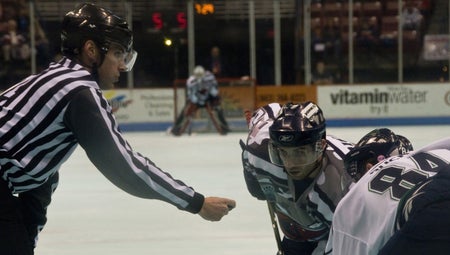About the Chicago Steel at Fox Valley Ice Arena
The Chicago Steel are a member of the United States Hockey League, also known as the USHL. The team plays at the Fox Valley Ice Arena in Geneva, Illinois, a publicly available skating center just south of Interstate 38. The facility features two hockey rinks, one 200’ x 85’, the size of an NHL rink, and a second pond that measures 200’ x 100’, which mirrors international regulations. In the western suburbs of Chicago, the Steel are a premier ticket for hockey fans of all ages. The Steel feed players into the NCAA hockey system, notably Jaccob Slavin, who attended Colorado College before becoming a star defenseman for the Carolina Hurricanes. Before Brock Sheahan took over behind the benches in 2019, the Steel were helmed by coach Greg Monroe, a former assistant with Team USA. In the shortened season of 2019-20, the Steel took home the Anderson Cup, awarded annually to the USHL’s regular season champion. Games at the Fox Valley Ice Arena are more akin to NHL matches than minor league fans may be used to. The arena is an official rink partner of the Chicago Blackhawks and has seen numerous upgrades since the Steel began playing home games here in 2015. Amenities include an award-winning restaurant owned by a cousin of NHL legend Chris Chelios.
Chicago Steel Background
The Chicago Steel were formed in 2000, after the Fargo-Moorhead Ice Sharks relocated to Bensenville, Illinois, in 1996. The team re-branded in the new millennium, becoming the Steel, though they wouldn’t leave Bensenville until 2015. The team is represented by their adorable mascot, Rusty the Dog, who occasionally brings a puppy, Rascal, to home games. The Steel won their first USHL Championship, called the Clark Cup, in 2017, defeating the Sioux City Musketeers in a best-of-five series. The series was a nail-biter, with the Steel winning the final game in overtime. After that victory, Steel coach Dan Muse was hired by the Nashville Predators of the NHL as an assistant coach. While the Steel aren’t affiliated with a NCAA program or NHL team, many Steel players have played at the NCAA Division I level since 2000, and several dozen Steel alumni have been drafted by NHL teams.
